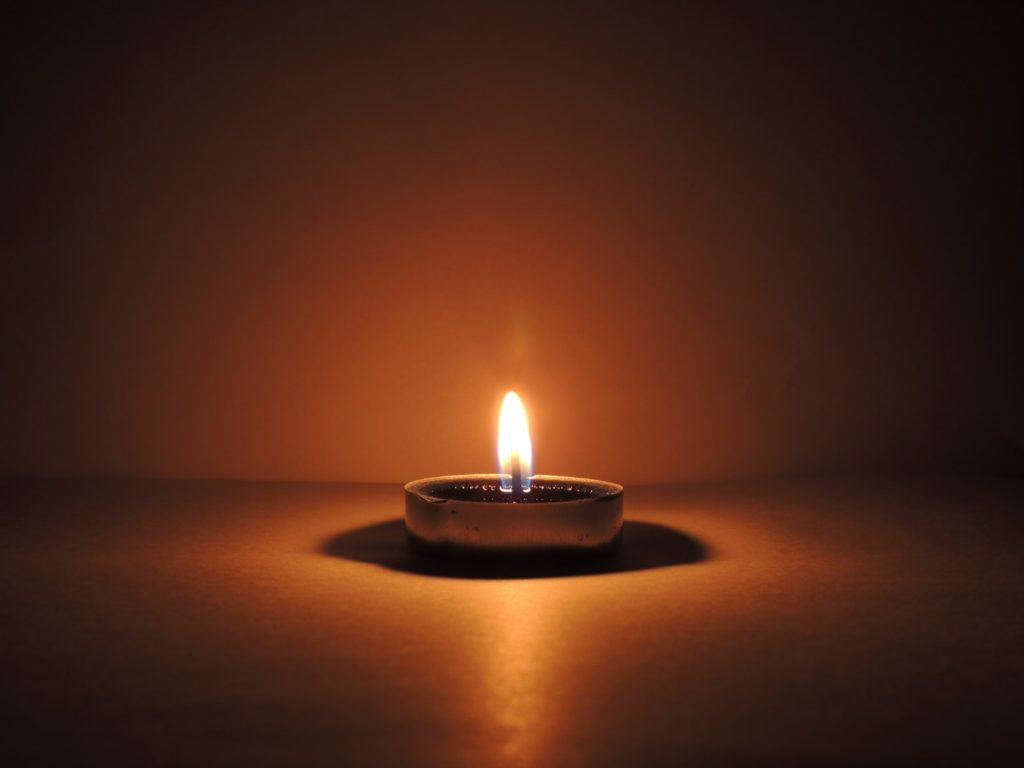Remembering Services: the role of remembering in the journey to faith

Author: Laura Treneer
As October draws to a close and November begins, many churches enter a season of remembering, with Remembrance Sunday and All Souls Day. Research from the Church of England has shown that these services are often another step on a journey of faith, a valued point of connection with church. Some of those bereaved will return to the place of value.
The Very Reverend Stephen Lake, Dean of Gloucester reflects on how lighting a candle, or simply pausing in the silence, perhaps year after year, might help people:“I think people will come, and come back again, and then they become part of the church’s story and of Jesus’ story, and they engage in ways that very often we don’t get to see.” (from the Church Support Hub)
Church can be a safe place to talk about grief and loss. Remembering can involve giving thanks, giving space for emotions, gathering people and memories together, saying prayers or blessings, and finding comfort and hope in Christ. God can speak powerfully in All Souls and Remembrance services through times of silence and stillness, through traditional music and words and through symbolic actions. Acts of kindness, even as simple as sharing cake, can be powerful.
As Christian charity ‘Loss and Hope’ write:
“2020/2021 has been unprecedented as we have faced the
uncertainty, anxiety, changes and grief caused by the Covid pandemic. Much has been lost – people, jobs, schooling, freedoms, routines and perhaps even hope. This year, the Season of Remembering, from All Souls’ to Remembrance Day, has an added poignancy and there is special need in our communities to pause, reflect and remember. What this looks like will be different in different contexts.”
“An All Souls’ Day service will be on or near 2nd November and will remember those who have died at any time and in any way; a Remembrance Service around 11th November will be specifically about people who have died in the world wars or armed service; a ‘Thanksgiving and Remembering’ service, or special remembering activity, can be held with any focus and at any time. Loss is often compounded and any specific service or activity will remind people of unresolved past or present loss and pain. There is often a need to ‘do’ something and to ‘mark’ a loss to help to bring closure and healing.”
The Church Support Hub have some suggestions:
- Remember to mention your ‘All Souls’ or equivalent service to all those who have had a funeral in the last year or even further back. You can publicise this on your website, and/or contact the bereaved families directly.
- The title ‘All Souls’ may not mean much to those who are not used to church. Even though that is what it is, another name, such as ‘Service for the bereaved’ may help them identify it is a service specifically for them.
- Special dates like Christmas, Mothers’ Day and Fathers’ Day can be difficult times for people, whether bereaved recently or long ago. Think of these people when planning sermons ahead of these services. Include appropriate prayers for those who are finding the season of celebration difficult.
- Consider putting on a different kind of service at a separate time from the main celebration, to specifically cater for bereaved families. See the Church Support Hub Ideas section for more possibilities.
In September 2021 Sandra Millar from the Life Events team at the Church of England delivered a webinar about remembering Services in (which you can watch here).
During the session they were asked about when people move into more complicated grief. They advise that “it’s vitally important to remember that there are limits to what we can provide – and to recognise when we have reached our limits, but also to realise that most grief doesn’t fall into the category of complicated grief. Most people can be supported by “contact, listen, bless” – that is: being in touch, listening and offering kindness – and many people have found that talking (for example as part of a Bereavement Journey group) has enabled them either to move forwards, or to identify that they need specialist help.
As a result of the pandemic, grief is more likely to be complicated though – so do look for specialist support groups and counselling via the At A Loss website, just click on ‘Find support’. People can also seek help through their GPs or via the Association of Christian Counsellors.”
More resources
- Resources from the Church Print Hub for All Souls, bereavement, remembrance and funeral services and a way to light an online candle
- Presentation from Loss and Hope on remembering services Loss and Hope on remembering services
- Free downloadable All Souls thanksgiving and remembering service liturgy booklet
- A range of free and editable resources for community remembering services, and thanksgiving remembering services from Loss and Hope Season of Remembering
- A website hub of bereavement information and support services at ataloss.org,
- An article on Blue Christmas with an order of service
- Remembrance publicity resources from CPO
